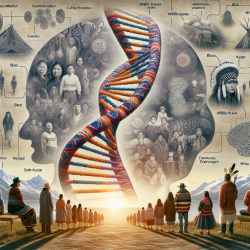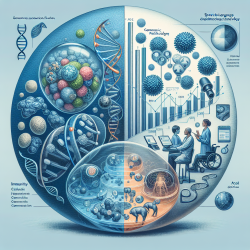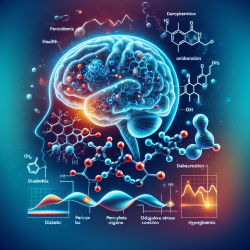Introduction
The intricate relationship between historical trauma and genetic expression is a burgeoning field of study that holds promise for understanding health disparities among Indigenous populations. A recent study titled "Association between gene methylation and experiences of historical trauma in Alaska Native peoples" sheds light on how historical trauma can manifest biologically through DNA methylation, potentially influencing health outcomes. This research not only highlights the embodiment of trauma but also underscores the importance of cultural identification in fostering wellbeing.
Understanding the Research
The study involved 117 Alaska Native individuals who participated in surveys assessing cultural identification, historical trauma, and general wellbeing. Blood samples were collected to analyze DNA methylation using the Illumina Infinium MethylationEPIC array. The results revealed associations between historical trauma symptoms and DNA methylation at five CpG sites, suggesting a biological embodiment of trauma.
Moreover, the study found a positive correlation between cultural identification and general wellbeing, reinforcing the idea that cultural connections can buffer the effects of trauma and aid in healing. This aligns with existing literature that emphasizes the role of cultural resilience in overcoming historical adversities.
Implications for Practitioners
For practitioners working with Alaska Native communities, these findings offer valuable insights. Understanding the biological underpinnings of historical trauma can inform interventions aimed at mitigating its effects. Practitioners are encouraged to incorporate cultural elements into therapeutic practices, recognizing that cultural identification is a significant factor in promoting wellbeing.
Additionally, this research advocates for a community-engaged approach in conducting studies with Indigenous populations. Such an approach ensures that research is conducted ethically, with respect for tribal sovereignty and cultural nuances, ultimately leading to more meaningful and applicable outcomes.
Encouraging Further Research
While this study provides a foundation, further research is needed to explore the complex interplay between historical trauma, DNA methylation, and health outcomes. Practitioners and researchers are encouraged to collaborate with Indigenous communities to expand this field of study, ensuring that future research is culturally informed and community-driven.
By continuing to investigate these relationships, we can better understand how historical trauma is embodied and develop more effective interventions to support healing and resilience in Indigenous populations.
Conclusion
This study highlights the profound impact of historical trauma on genetic expression and wellbeing among Alaska Native peoples. By integrating cultural identification into therapeutic practices and research, we can foster resilience and healing. Practitioners are urged to consider these findings in their work and to advocate for further research in this critical area.
To read the original research paper, please follow this link: Association between gene methylation and experiences of historical trauma in Alaska Native peoples.










